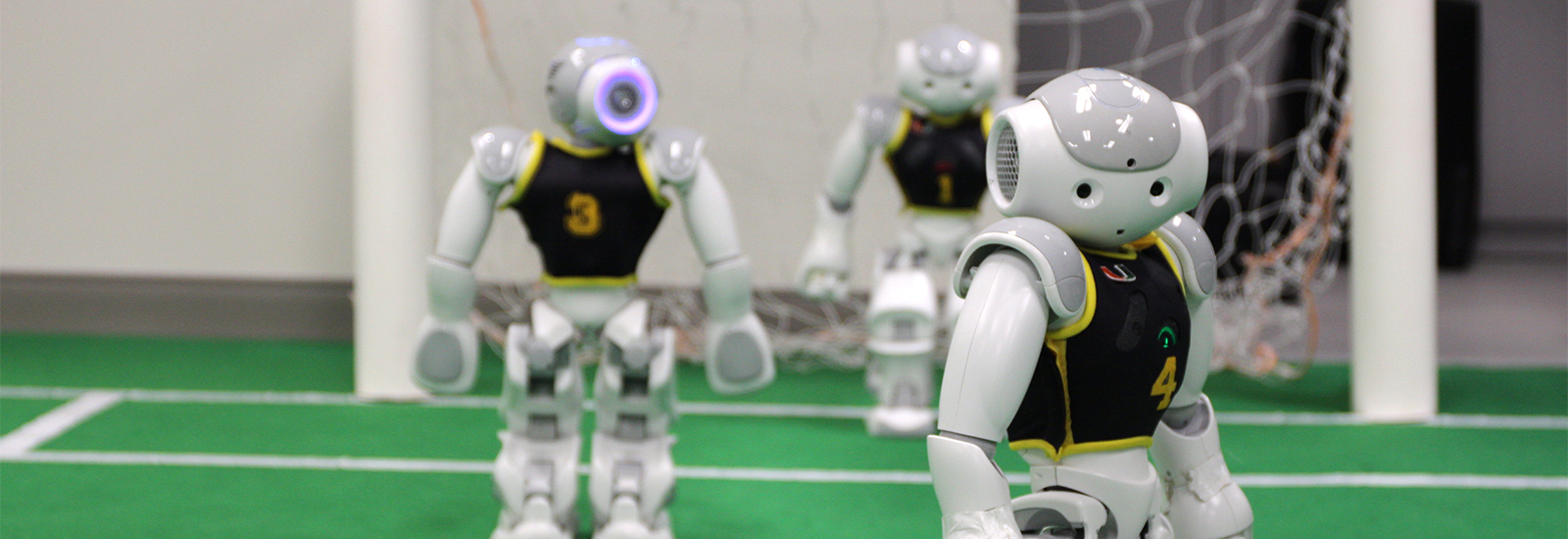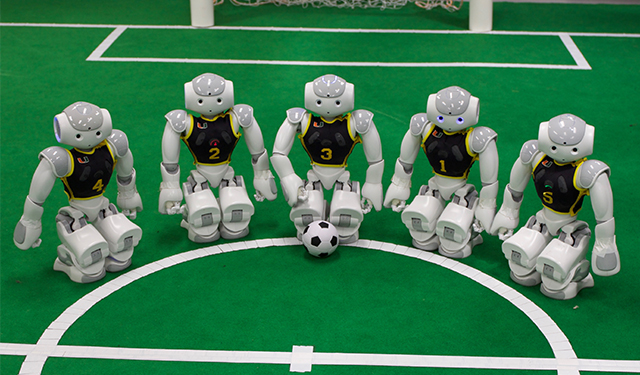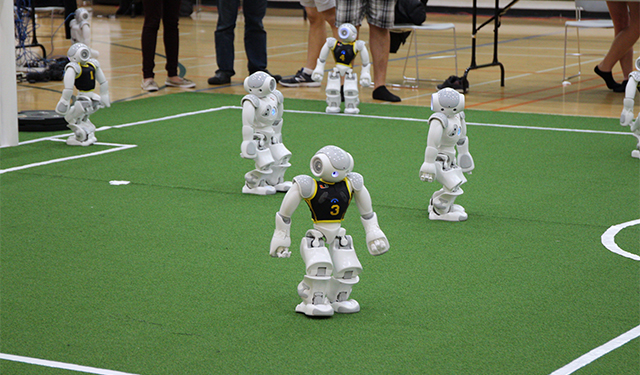“RoboCup serves as a vehicle to promote robotics and AI research by offering a publicly appealing and formidable challenge,” says Visser. “Building a robot that plays soccer will not generate significant social and economic impact, but the accomplishment is considered a major achievement for the field.”
The Nao robots are autonomous, programmable humanoid robots that are manufactured by a French robotics company—SoftBank Robotics, previously Aldebaran Robotics.
The UM team has competed in the RoboCup U.S. Open since 2012, and won the American RoboCup playoffs in 2015.
RoboCanes traveled to Germany for the 2016 RoboCup World Championship, where the four-person team—operating up to five robots at one time—overpowered teams from Estonia, Austria, Switzerland, Germany, and China, before being eliminated in the intermediate play for the quarterfinal round.
“We reached a momentous stage at RoboCup,” said Visser after the 2016 championship. “Not only did we come close to making the quarterfinals this year, but we were the only team with robots that could walk stable on various surfaces, from granite to grass and indoor carpet.”
The latest feat for the UM robot team? Advancing to the semi-final round and placing fourth in the world at the 20th anniversary of the RoboCup World Championship in July 2017 in Nagoya, Japan.
“We were able to submit a competitive package and compete among the 12 teams and reach the semi-final, where we lost against the long-time world champion, UT (University of Texas at) Austin,” said Visser after the 2017 competition.
The team is preparing for their next competition in Montreal in 2018.
“We are excited because there will be a new hardware platform next year,” said Visser.
“The Nao robots will get a significant update. Just in time since our hardware is no longer competitive. We learned that after this year’s competitions at the U.S. Open in April and the World Cup in July. The downside is that we need to invest approximately $36,000 for the new hardware, so we are looking for sponsors at this point.”
Bolstered by University of Miami computer science innovation, there’s no doubt the RoboCanes won’t knock it out of the park.









